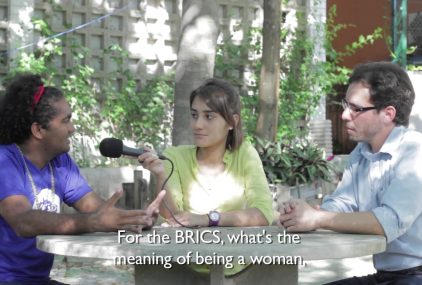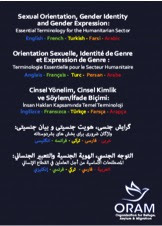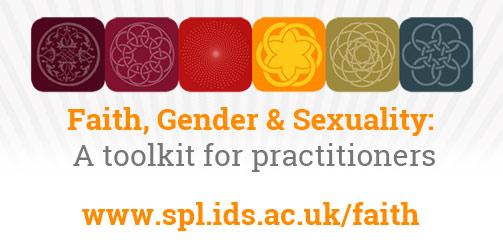
Why don’t humanitarian organizations provide safe abortion services?
Although sexual and reproductive health services have become more available in humanitarian settings over the last decade, safe abortion services are still rarely provided. The authors’ observations suggest that four reasons are typically given for this gap: ‘There’s no need’; ‘Abortion is too complicated to provide in crises’; ‘Donors don’t fund abortion services’; and ‘Abortion is illegal’.

How governments in the Global North can effectively partner with intermediary organizations to support LGBTI communities in the Global South and East
“The Road to Partnerships” was commissioned by GPP in fulfillment of a commitment made during the Conference to Advance the Human Rights of and Promote Inclusive

A Development Agenda for Sexual and Gender Minorities
A Development Agenda for Sexual and Gender Minorities, by Andrew Park, International Program Director, The Williams Institute, UCLA School of Law is grounded in current research literature regarding important development outcomes for sexual and gender minorities, such as health, employment, family formation, education and civil participation.

Telling women to avoid pregnancy is not a solution for HIV and the Zika virus
To the development community on International Day of Action for Women’s Health: don’t curtail our rights by legitimising conservative religious ideologies.
International Humanitarian Organization Releases First-of-its-Kind Glossary of Terminology for LGBT Individuals
rganization for Refuge, Asylum & Migration (ORAM), a leading international non-profit organization devoted to advocating on behalf of the world’s most vulnerable refugees and asylum seekers, has released a first-of-its-kind glossary of terminology to assist humanitarian professionals to communicate with people of diverse sexual orientations and gender identities.

A practical guide for partnering with police to improve abortion access
This guide is a resource for advocates, trainers, project managers and technical advisors who design programs and workshops to engage police on abortion issues. Drawing
New interactive resource to bridge gap between faith, gender and sexuality
Across the globe, religion plays a critical role in shaping attitudes about gender norms and sexuality, which in turn have a profound effect on people’s everyday lives. A new Faith, Gender & Sexuality Toolkit launched today seeks to build knowledge and provide crucial support for faith communities and leaders working to promote social justice in relation to gender and sexuality.

Equal Rights Review Vol 16 – issue on intersectionality
Today the Equal Rights Trust has published volume sixteen of its biannual Equal Rights Review, an interdisciplinary journal offering analysis, insight and ideas to those promoting equality. This issue has a special focus on intersectionality.

New study estimates contraceptive failure rates in 43 countries
In the most comprehensive study to date of contraceptive failure rates in the developing world, researchers found that overall, failure rates are lowest for users of longer-acting contraceptive methods (IUDs, implants or injectables), intermediate for users of shorter-acting methods (oral contraceptive pills or male condoms) and highest for users of traditional methods (withdrawal or calendar rhythm).



